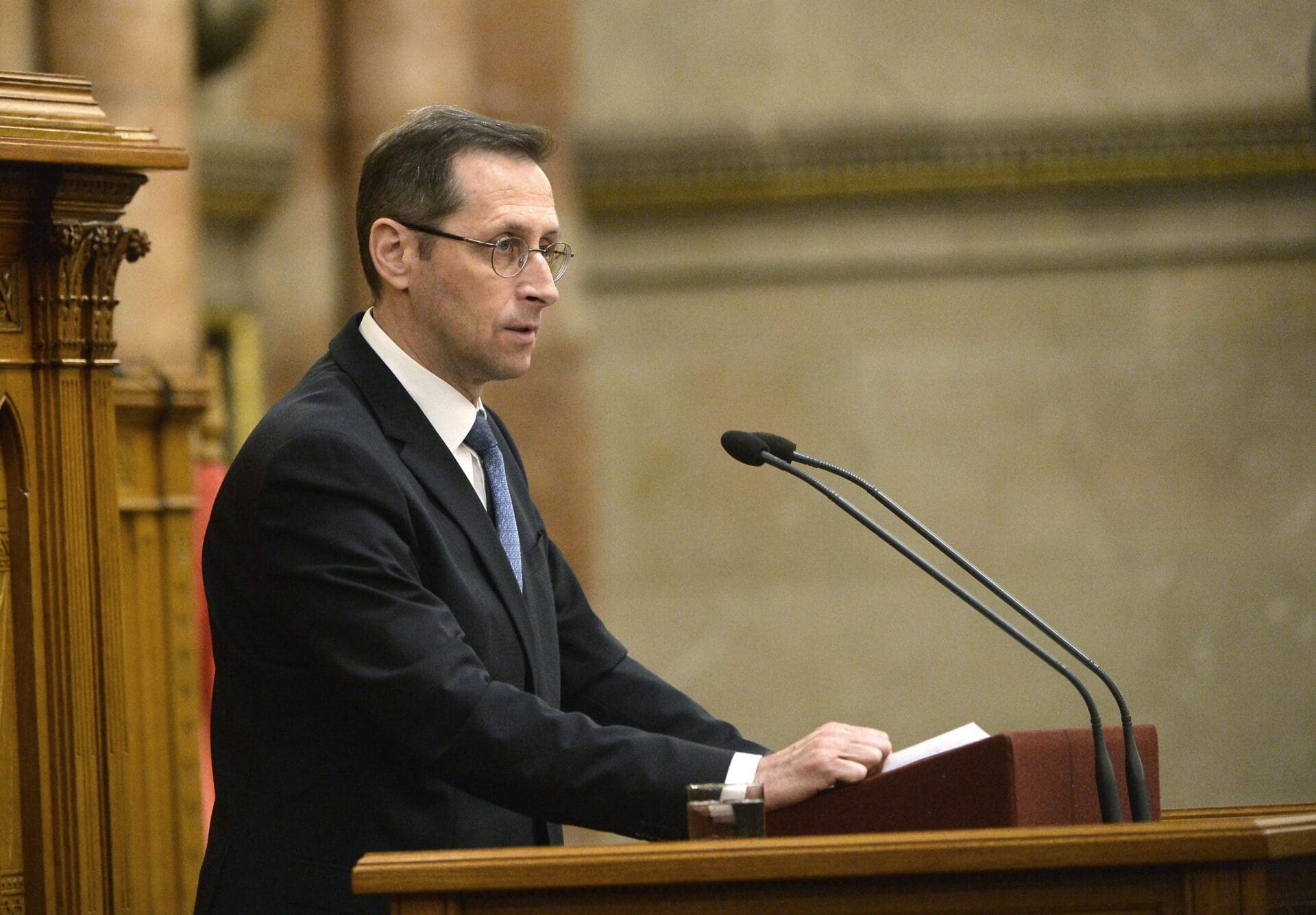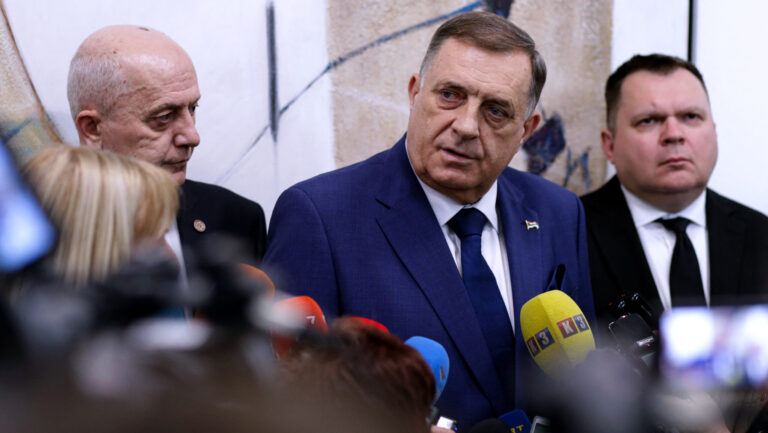Agreeing and cooperating with the central bank’s efforts, the government considers controlling inflation as its most important economic policy task, Minister of Finance Mihály Varga said on Thursday at the opening day of the 61st Itinerant Conference of Economists in Eger.
Mihály Varga pointed out during the introductory economic policy roundtable discussion that the government has taken measures to reduce inflation risks, which have yielded results. This is confirmed by the analyses of major credit rating agencies, which are ‘filled with positive findings,’ he said.
He recalled that both monetary and fiscal policies had been loose in Hungary in recent years. However, the coronavirus pandemic placed the government’s economic policy in a completely new situation, prioritizing job retention, financing the survival of the economy, and providing income to those in crisis-hit sectors.
He emphasized that the surge in inflation was primarily attributed to the energy intensity of the Hungarian economy and the explosion in energy prices. However, due to the necessary and inevitable decisions made during the pandemic, the economic impacts of war, and political disputes with the European Union, efforts to improve deteriorating indicators continue. Thus,
the government maintains fiscal discipline while further reducing the level of public debt and budget deficits.
He added that a decreasing trend is expected in the budget deficit this year, and next year, it would be reduced to the 2.9 per cent level approved by Parliament.
The minister indicated that since the end of 2021, the government has decided to postpone several billion forints worth of investments. If necessary, the government is prepared to suspend ongoing projects, and they are considering increasing taxes on the banking sector, delaying defence procurement, and reviewing subsidized credit programmes alongside limiting ministries’ spending.
Analyzing the causes of inflation, he noted that the central bank is primarily responsible for managing inflation. The Hungarian National Bank (MNB) did the right thing by starting its interest rate hike cycle when inflation soared, but the timing of this decision is debatable. When it raised interest rates, it also bought government bonds and corporate bonds, and one cannot ‘blow hot and cold in the same economy simultaneously,’ he said.
The enduring problem of the economy is improving competitiveness and efficiency, but besides this, there are several areas on which the government needs to focus in the coming years. However, first and foremost, inflation must be curbed and stabilized at a manageable, even beneficial level, so that once this is achieved, the economy can return to its previous growth trajectory, he concluded.
Governor of the Hungarian National Bank György Matolcsy spoke about the misconception that one can choose between inflation and growth, stating that ‘currency devaluation eats away at growth,’ and it must be fought against. He expressed that Hungary is emerging from a short but fierce ‘inflation adventure’, with the central bank applying the brakes from mid-2021 while the government stepped on the gas. For a year and a half, the government ‘forgot’ to implement measures to curb inflation and instead made decisions that, on their own, increased inflation by three to four per cent. ‘Perhaps they wanted to put out a fire, but with oil,’ he opined. Due to this ‘adventurous government economic policy,’ domestic currency devaluation peaked more than ten per cent above the regional average, causing economic growth to suffer, and everyone lost, he emphasized.
The central bank president believed that the root cause of the ‘inflation shock’ lies in the country’s economic and financial dependency, which has increased since 2014 in key areas. He also noted that Hungary’s risk assessment is not favourable.
‘These are challenging times, and they call for careful, cautious economic policies as well as a complete turnaround in competitiveness in the economy,’
he said.
Vice President of the Hungarian Economic Association Péter Ákos Bod discussed the reasons behind the rising inflation in the global economy, noting that while factors related to energy prices are receding, core inflation seems to be stuck. Therefore, central banks are reluctant to lower interest rates. The international inflation situation is also important for Hungary due to its high public debt, he emphasized. He also mentioned that the development of the balance of payments is greatly influenced by energy price fluctuations, and despite some forward-looking phenomena in the structure of the domestic economy, it remains relatively energy-intensive, making it vulnerable to energy imports.
He remarked that Hungary’s public debt risk is in a delicate area, and the country’s macroeconomic situation is subject to factors over which the government has no control. He believed that as a result, there is a risk of entering a ‘recession-like state.’ Regarding the interest rate hikes, he stated that while it did stabilize the exchange rate of the forint, the additional interest burden is now imposed on society as a whole.
Related articles:
Sources: Hungarian Conservative/MTI








